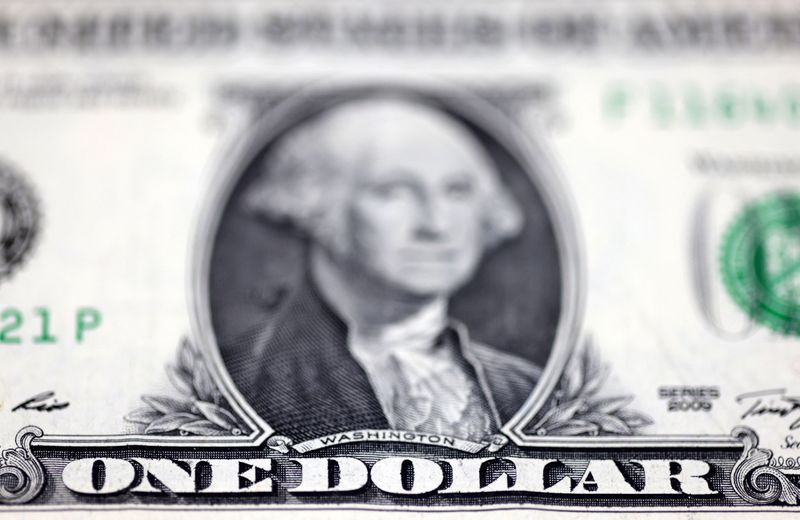Moody’s downgrades Senegal to Caa1 amid rising debt concerns
Investing.com -- The U.S. dollar, already weakened by tariff uncertainty and recession fears, is likely to experience further decline, according to Goldman Sachs’ chief economist, Jan Hatzius.
The dollar has seen a decrease of over 4.5% in April, marking its largest monthly drop since late 2022. This has led to speculation about a crisis of confidence in the world’s leading reserve currency.
This year, the dollar has fallen 8% against a basket of other major currencies. Hatzius suggests that additional drops could worsen price pressures, especially as tariffs are already causing inflation.
In an opinion piece in the Financial Times, Hatzius notes that a weaker dollar could potentially reduce the U.S. trade deficit and protect the economy from recession. However, he warns that the factors causing dollar weakness could nullify the effects of a weaker currency on financial conditions.
"I often dodge questions about the dollar. A large body of academic literature and my own experience as an economic forecaster have taught me that predicting exchange rates is even harder than predicting growth, inflation and interest rates.
But with all due humility, I believe that the recent dollar depreciation of 5% on a broad trade-weighted basis has considerably further to go," he wrote.
Drawing from historical data, Hatzius notes that two periods with similar dollar valuations to the present day -- the mid-1980s and early 2000s -- led to a 25-30% depreciation.
The IMF estimates that non-US investors hold around $22 trillion in U.S. assets, which Hatzius suggests might make up a third of combined portfolios. Half of this is thought to be in equities, often not hedged for currency movements.
Hatzius also highlights the U.S. current account deficit of $1.1 trillion, which must be balanced by a net capital inflow of the same amount each year. This is typically achieved through foreign purchases of U.S. assets, meaning a pause in such purchases could negatively impact the dollar.
The significance of these factors would be lessened if the U.S. economy continued to outperform its peers, but this seems unlikely. The IMF recently predicted that U.S. economic growth will decrease by a full percentage point to 1.8% in 2025, down from 2.8% last year.
Despite the predicted weakness of the dollar, Hatzius does not believe this signals a loss of its reserve currency status.
"Barring extreme shocks, we think the dollar’s advantages as a global medium of exchange and store of value are too entrenched for other currencies to overcome," he concluded.
